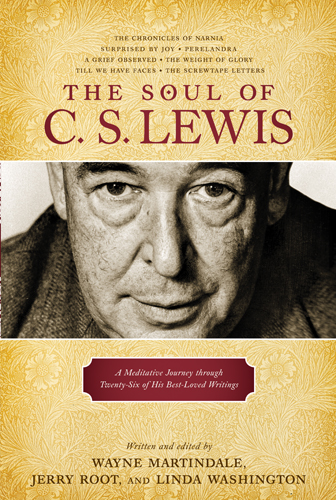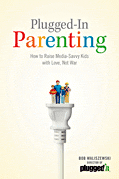Ask the Readers: Tips to Read More
It’s been awhile since we had an “ask the readers” column. That’s true for two reasons:
1. I haven’t thought to do it in some time.
2. When we have one, there are very few responses.
If you want to respond to any column, all you have to do is leave a comment. If you aren’t sure how to do that, contact me and I’ll let you know.
————————————————
 I have always been amazed at guys who can read tons of books, and have the mental ability to remember what they read. I was recently reading Charles Hodge’s monthly column in the most recent Gospel Advocate and he stated that he has read about 400 books per year for the past 45 years. I know that brother Winford Claiborne has read over 300 books per year for several decades.
I have always been amazed at guys who can read tons of books, and have the mental ability to remember what they read. I was recently reading Charles Hodge’s monthly column in the most recent Gospel Advocate and he stated that he has read about 400 books per year for the past 45 years. I know that brother Winford Claiborne has read over 300 books per year for several decades.
Personally, my goal for this year is to complete 50 books (not including children’s books I read to the kids). I’m on pace to do that, barely. And, I feel like I read constantly. Very few days go by where I don’t read a fairly good amount of material. Yet, there is no way I could even approach “triple digits” as far as the number of books I consume in a year.
Here is what I want to know. What are some things you do to read more, and to remember what you read? I’m not looking for “learn to speed-read.” I enjoy reading at the pace I can, which is somewhat quick, but I want to still be able to remember at least the main thrust of each book I take in.
I know that it’s not necessarily quantity that matters, but I enjoy reading and I enjoy reading on several different topics, so I want to read more without taking time away from my family and other very important things. Any tips you can give would be helpful.
Thanks in advance!



17 Comments
Scott McCown
I admire you for reading 50 books a year. I could learn from you.
Scott McCown
I admire you for reading 50 books a year. I could learn from you. I struggle to read more than 20. I suppose time management would be key. Like Jane says to Mr. Bingley in Pride and Prejudice, “I always find something else to do . . “
Scott McCown
The quote from the 2005 Pride and Prejudice movie stated correctly: “I wish I read more, but there seem to be so many other things to do.”
Austin Holiman
I usually set aside two hours a day for reading. I try to find a place where I can truly concentrate. The church building in the afternoon is where I do my best reading. I read the chapter, then go back over it where I underline the important sections and themes.
I’m not sure if this is exactly what you’re looking for, but it really helps me to retain the information.
Adam Faughn
Scott….thanks for your kind words. I used to “shoot for” 40, and decided to challenge myself a bit more this year. That’s a GREAT quote, though!!!
Austin…that is exactly what I’m looking for, and that’s a great tip for retaining what one reads. Thanks! Now…to find two hours a day!
John Gaines
My first thought is that they could not possibly get much out of reading a book a day on average. However, I know brother Claiborne and he definitely does master what he reads. For me, quality of the reading experience is more important than the quantity of books read. I took a speedreading course once and found the effort to speed read very unsatisfying.
Wesley Walker
I have heard this from D.A. Carson and other big readers. They say when they are reading a research style book (a lot of the book preachers read, they read the introduction and conclusion first so that they have a really good feel what the book is about and then they spend time on the table of contents getting a feel for the books argument. This allow for faster reading once you start (you are able to skip areas you are proficient in) and it prepares your mind for learning what you are going to read.
Pat Adams
I am no speed reader but I do have a method for retaining the material, and that is simply to recognize the important points and make sure I have completely digested them before I go on. A lot of what you read is pure “filler,” and can be skimmed very quickly without losing anything worthwhile. When an important point catches my attention, I slow down – way, way down – because it is worth my time.
Christina Gillim
I’m not an expert by any means because I just started reading, really reading, this summer but something I have found very helpful is to get up at least an hour earlier each morning. I read for a good while and then I pray about what I have read. I keep a prayer journal so I write down certain things that stood out to me from the text and ask God to give me better understanding and to help me apply those things throughout the day. I don’t know if it will help you reach your goal of fifty or not but it helps me retain what I read.
Joe Chase
Adam, I am listening to audio books more and more. Sadly, many of the books I’d like to read are not in that format. But when I find one I treasure it.
I have a reading disability which causes me to re-read each sentence many times over. It is murder for me to read an entire book. However, I’ve found that reading important materials aloud helps me not re-read the same 3 or 4 words over and over. Reading out loud is slower for most normal readers. But you have the added benefit of hearing the material you are reading.
I also have tried reading first and last sentences of a paragraph. These often contain focus thoughts and conclusion thoughts. This will almost always help me clarify the intended thought.
Anyone have a cure for those of us re-readers? It has plagued me since first grade.
In Him,
Joe
Jim Faughn
23 so far this year, but I’m finding that I have to “fit it in” more and more. I’m interested in reading what tips the others have.
Pingback:
Wayne Gordon
Reading is not one of my favorite passtimes. I have difficulty concentrating and understanding when I read. I’m easily distracted by noise and movement which makes it even more difficult. Anyone who has been there-done that feel free to offer suggestions that have helped you.
Samantha Bates
Are you writing your thoughts down as you read? Reading is an interaction between the text and your brain. Notate what your brain is doing, in the book if possible. When you finish a book, jot down what you want to remember about it, 2-3 sentences.
As far as increasing reading time, take your book everywhere. Any time spent waiting you can be reading.
Adam Faughn
Samantha, great question. It truly depends upon the book. If I find myself really interested, I’ll make notes and use them later.
Also, I will record my thoughts on this blog in the form of book reviews and they help me sort through similar books later.
Suzanne Burleson
Here are a few tips I used to give my students:
First, eliminate as many distractions as possible. Some people can concentrate better if they listen to quiet music in the background while they read. Others need total silence. The reader has to find what works best for him/her.
Second,interact with the text. If the book belongs to you and you don’t mind writing in your books (I personally love to make notes in my books), then note important points or things that stand out in the margins. Also, record your thoughts or questions as you read. If necessary, note taking can be done on post-it notes or in a journal(as Christina suggested).
Third, utilize book reviews as you select books to read. Amazon.com gives excellent book reviews on a huge selection of titles and authors. Sometimes, having an idea about the content of the book prior to reading it will help you to retain the material longer.
I also agree with your idea of sharing your thoughts on books on this blog. When you share and discuss a work of writing, it becomes more personal as you state your opinions on the material.
And personally….I think you shouold count the books you read to the kids. I can’t tell you how many great lessons I’ve learned and shared with my students from picture and story books. I’ve used picture books with students from Kindergarten all the way through 12th grade. We are never too old to enjoy the delight of reading with a child.
Sandy Puckett
As I understand it, there are 3 basic learning styles: visual, auditory, kinetic (hands on). Each of us learns best in one or more of those styles. I find that hearing things aloud and writing notes down helps me retain them better. My daughters say that hearing things aloud doesn’t work for them…maybe that’s why me telling them to clean their rooms didn’t always work! I also find that the older I get the more difficult it is to concentrate on complicated reading material, so it may require 2 or 3 passes to take hold of it. As far as finding time, I take my current books with me and read them whenever I find myself with time on my hands and I’m alone. I like to have breakfast at McDonalds most week-day mornings, so I try to grab a few minutes of reading time while I’m there. I’ve read 2 or 3 books over the last couple of years in this way.
The comments have been very interesting.